|
On July 25th, we celebrate the feast day of St. James the Apostle. St. James and his brother John were the sons of Zebedee. Jesus referred to these brothers as the “Sons of Thunder,” most likely due to their penchant for rash, emotional reactions and decisions. St. James teaches us the importance of humility and of promptly responding to God’s call, regardless of the securities we may leave behind in doing so. He was the first apostle to die a martyr’s death. We can look to his zeal for following Christ and his courage in spreading the faith in difficult times as examples for our own spiritual lives. We remember from Scripture that St. James and St. John initially asked Jesus if they could be placed on either side of him in his heavenly kingdom. Jesus uses this as an opportunity to reiterate to the disciples the importance of servant leadership. Jesus responds, “You know that those who are recognized as rulers over the Gentiles lord it over them, and their great ones make their authority over them felt. But it shall not be so among you. Rather, whoever wishes to be great among you will be your servant. Whoever wishes to be first among you will be the slave of all. For the Son of Man did not come to be served but to serve and to give his life as a ransom for many.” (Mark 10:42-45) From this lesson and Jesus’ previous parable of The Workers in the Vineyard (Matthew 20:1-16), we learn that the faithful are invited to receive the ultimate reward of eternal life with our Father in heaven. Jesus reminds us that we shouldn’t get caught up in the earthly understanding of rankings, but can all share in the glory of God in heaven. We also learn from this example with St. James and St. John that serving others is how we are called to love our neighbors. As 1 Corinthians 13:3 says, “If I give away everything I own, and if I hand my body over so that I may boast but do not have love, I gain nothing.” Jesus asks us to rely on him and not on others’ recognition of our sacrifices. In the New Testament, we often hear of St. James mentioned with Sts. John and Peter. These three disciples were privileged to be present at many of the significant moments in Jesus’ ministry on earth, including the Transfiguration and Agony in the Garden. The Holy Spirit’s presence within the apostles at Pentecost was a turning point for St. James and the other disciples because it showed them the true nature of Jesus’ mission and the meaning of his sacrifice on the cross (Benedict XVI, General Audience, June 21, 2006). From there, James and the other apostles went out to all the nations, preaching Jesus and his Gospel message. James’ life after Pentecost symbolizes the pilgrimage of the Christian journey (Benedict XVI, General Audience, June 21, 2006). His journey is one of the reasons he is considered the patron saint of pilgrim travelers and was recognized as a patron saint of World Youth Day 2016. In fact, the path to Santiago de Compostela, where St. James is buried in northwestern Spain, was one of the most traveled pilgrim routes during Medieval times after Rome and Jerusalem. Many people continue to make this pilgrimage today and to seek the guidance of St. James. We can call upon him to protect us during our journeys and to intercede for us for our personal conversions of heart before, during, and after our travels. We are called to follow Jesus as St. James did, knowing that even through life’s difficulties, we are walking along God’s path for us together with Christ. Through the example of St. James the Apostle, we see that following Jesus can have its difficulties through persecution and other hardships, but that our eternal reward is life in heaven with him. St. James’ story encourages us to leave our comparisons to others behind, fully trust in God, and show enthusiasm for Jesus Christ even when it is difficult. Questions for Reflection: Have you ever embarked on a pilgrimage? How did it deepen your spirituality? What are some ways we might be called to grow in our humility as we practice servant leadership in following Christ?
2 Comments
“They were to be brought into the arena just as they were. Perpetua then began to sing a psalm.” -The Passion of Sts. Perpetua and Felicity What psalm did you sing, Perpetua, when you were thrown into the arena to face the wild beasts? I can’t help but wonder as I reread the martyrdom account of Sts. Perpetua and Felicity, whose feast we celebrate today. The calm and joy of both women astounds me. What psalm would one sing in the face of death? And how could one find the courage to even sing? Martyrdom contradicts everything we are told to value in this world. It entails giving without reserve, sacrificing all, even the greatest good, which is life itself. And yet the martyrs are a stark, beautiful, and perhaps even uncomfortable proof of what sacrificial love can look like. They help us to readjust our eyes to the eternal. “Who are the martyrs?” Pope Francis asked in his message for the beatification of the Spanish Martyrs of the Twentieth Century. “They are Christians won by Christ, disciples who learned well the meaning of ‘loving to the end’ that took Jesus to the Cross.… Christ goes before us in love; the martyrs have imitated him in love to the end.” We read in the first letter to the Corinthians just what we are called to when we are called to love. “Love is patient, love is kind,” he begins. But what else does Paul write? That love “bears all things, believes all things, hopes all things, endures all things. Love never fails.” The martyrs, such as Perpetua and Felicity, give testament to this love. What sets Perpetua and Felicity apart for me is their role in the Church not only as martyrs, but as women, specifically mothers. The account of their martyrdom includes text from Perpetua herself and is one of the few documents we have from the early Church of lay women martyrs. How beautiful that we celebrate the witness of these two women on the same day. Together, they give us a rich portrayal of grace by experiencing suffering with joy and remaining perpetually faithful to Christ. The account of their martyrdom notes that even those who had come to watch the martyrdom shuddered “seeing one a tender girl, the other her breasts yet dropping from her late childbearing.” As a new mother myself, re-reading their account makes their sacrifice all the more visceral. Both Perpetua and Felicity lost everything by human standards to face their martyrdom: family, wealth, possessions, children. Yet both gain everything by God’s standards: eternal life resting in the beatific vision. Both women live up to their names. Perpetua remains steadfast to her faith. While Felicity, which means intense happiness, joins the Christian martyrs with joy and serenity, praising God for the early birth of her child so that she could join her companions in martyrdom. The example of these women seems baffling to our world. How could a mother give up her child? How could a person give up wealth, possessions, titles, security? Apart from God, these sacrifices make no sense. So what can we learn from the martyrs? “The Holy Fathers say: ‘Let’s imitate the martyrs!’” Pope Francis continued in his message. Does this mean we must forfeit our lives, give up everything, if we are to follow Christ? Some have been and still are called to give their physical lives for the Christian faith. However, I think we can all live out martyrdom in many different ways. Pope Francis expands on this understanding. He continues, “We always have to die a bit to come out of ourselves, of our egoism, our wellbeing, our sloth, our sadnesses, and open ourselves to God, to others, especially the neediest.” In other words, we can join in the sacrifice of the martyrs, and of Christ for that matter, each and every day by offering up our own prayers and hardships—by dying to ourselves first and foremost. While we may not be called to give our physical life for our faith, we are always being challenged to give up anything in our lives that is not love. Lent is a particularly intense time of this dying to self, or mortification, in order to grow closer to our neighbor and to Christ. Additionally, we are called to endure this process of “everyday martyrdom” with joy and hope—something Perpetua in particular models beautifully with her singing. Let us follow the advice of St. Augustine as we continue our pilgrim journey: “Sing as wayfarers do—sing but continue your journey. Do not grow tired, but sing with joy!” Question for Reflection: In what ways can you die a little to yourself this Lent? Hallelujah! Praise God in his holy sanctuary; give praise in the mighty dome of heaven. Give praise for his mighty deeds, praise him for his great majesty. Give praise with blasts upon the horn, praise him with harp and lyre. Give praise with tambourines and dance, praise him with strings and pipes. Give praise with crashing cymbals, praise him with sounding cymbals. Let everything that has breath give praise to the LORD! Hallelujah! - Psalm 150 Back in high school, my primary extracurricular activities were band and drama club. I’ll always remember how our band teacher, Mr. Crocken, would begin every concert by reciting Psalm 150. Before any announcements or accolades, any thanks or congratulations, he would acknowledge the one from whom all our gifts and talents flow. Before all else, he gave a gentle but profound reminder of the importance of thanking God for our blessings at all times, especially through music. As one would expect in a Catholic school, we began every meeting, whether a class, club, or team practice, with prayer. Our after-school drama club rehearsals were no different. Concluding prayer with the school’s traditional litany to our three patrons, the drama club also always added Saints Genesius and Cecilia, the patrons of actors and musicians. I’d always wondered why Cecilia was patroness of musicians and, since her feast day is today, I finally investigated. Saint Cecilia, one of the most venerated of the Roman martyrs, is most well known as patroness of musicians. Despite having consecrated her maidenhood to God, she married a man called Valerian. During their nuptial Mass, she sang to God in her heart, asking for an angel to protect her virginity. When Valerian asked his bride for proof that she was protected by an angel, Cecilia sent him to the Appian Way to be baptized. There, he saw the angel and quickly became an evangelist, converting many to the faith before being martyred some time later. Cecilia’s martyrdom soon followed, ministering to the poor even on her deathbed. Since her canonization, Cecilia has been very much defined by that story of her singing on her wedding day. There’s even a musical conservatory in Rome, one of the oldest in the world, named after her. It’s always struck me how music is consistently referred to, particularly in Church circles, as a means by which to glorify and praise God. When I think of the moments when my soul has been most moved, they frequently involve music. Pieces like Handel’s Messiah, Mozart’s Requiem, and especially Schubert’s Ave Maria, move me even to tears more often than not. Why? They are beautiful works of art, to be sure, but the reasons they were written are far deeper. The composers used their craft to elevate the listener closer to God in a way that no other media seems able to match. Pieces of music like those just mentioned seem to take root in people’s hearts in a very profound way. That’s why they’ve been integrated into everyday life over the ages. From the Gregorian Chant used in the Mass, to folk songs sung at table or around the fire, even to modern popular music, the common thread is that humanity is united by that universal language that speaks directly to the heart. In my own life, Handel’s Messiah is very dear to me. We sang it in choir when I was in college, I listen to it every year while trimming the Christmas Tree and “decking the halls”, and I join a group of friends every December 23rd for a sing-along performance at the Kennedy Center in Washington, DC. Something about the piece moves me in a way I can’t really explain. But that’s the beauty of music! St. Cecilia gave thanks to the Lord in her heart and with her voice. This Thanksgiving, as we reflect on the blessings God has bestowed upon us this year, let us follow the example of St. Cecilia and the Psalms and join everything that has breath and praise the Lord. St. Cecilia, pray for us! Our country’s national anthem hails the United States as the “land of the free” in recognition of the many unique liberties and “inalienable rights” afforded to us, her citizens. One of these great gifts is the freedom of religious expression, that is, to be able to live out one’s faith without fear of persecution. Yet, recent times have seemed to cast a shadow over this right, and events of our time such as legal rulings and portrayals in the media would indicate that such freedoms are being curtailed. Throughout his visit to the U.S., Pope Francis encouraged us to nurture, promote, and defend the precious gift of religious freedom. Likewise, the United States Conference of Catholic Bishops has continued to encourage Catholics, other Christians, and all people of good will to set aside two weeks to reflect on religious freedom. By the time this post is published, the Fortnight for Freedom will be concluding, having been started on June 21, the vigil of the Feasts of St. John Fisher and St. Thomas More. As Donald Cardinal Wuerl describes it, the Fortnight comprises of “fourteen days of prayer, education, and action. It is also a time for us to count our blessings… The challenge to live out our faith, the challenge simply to be who we are may at times seem daunting. But remember we’re a people of hope, we live in faith and we live in hope.” The theme for this year’s Fortnight is “Witnesses to Freedom.” As Archbishop William Lori noted, the USCCB invites us to look to the examples set in “the stories of fourteen women and men— one for each day— who bore witness to freedom in Christ, such as Bl. Oscar Romero, the Little Sisters of the Poor, the Martyrs of Compiègne, and the Coptic Christians who were killed by ISIS last year.” Each year, dioceses around the country arrange special events to highlight the importance of defending religious freedom. To kick off the fourth annual Fortnight, for example, Archbishop William Lori celebrated the opening Mass at the Basilica of the National Shrine of the Assumption of the Blessed Virgin Mary in the Archdiocese of Baltimore. Each year, the closing Mass takes place at the Basilica of the National Shrine of the Immaculate Conception in Washington, D.C. with Donald Cardinal Wuerl being the main celebrant and Bishop David Zubik of Pittsburgh serving as homilist. The Fortnight for Freedom reflects an understanding of the People of God that the right of religious expression must be protected against those who would negate it, not just for Catholics, but for people of all faiths. As the Second Vatican Council noted, although we must respect the just autonomy of the secular, we also remember the truth that there is no aspect of worldly affairs that can be separated from God. On the eve of the first Fortnight for Freedom, Archbishop Lori, chairman of the Ad Hoc Committee for Religious Liberty, acknowledged that the effort was viewed by many as partisan and exaggerated. He commented: It is not about parties, candidates or elections, as some others have suggested… In the face of this resistance, it may be tempting to get discouraged, to second-guess the effort, to soft-pedal our message. But instead, these things should prompt us to do exactly the opposite, for they show us how very great is the need for our teaching, both in our culture and even in our own church. In standing up for our right to religious liberty, let us make prayer a central component of our efforts—prayer not only for ourselves, but for the leaders of our country and its citizens whom we are called to evangelize. These freedoms handed down to us by the Founding Fathers are too important to take for granted. Efforts to scrub any reference to God or the faiths of those who built up this great Nation must be called out and overcome. Finally, throughout it all (and beyond the two weeks), each of us must remember that our strength does not come from ourselves, but that “help comes from the Lord, the maker of heaven and earth” (Psalm 121:2). May these two weeks, by the grace of God, help us to grow in wisdom, courage, and love, that we too might be faithful witnesses to freedom. To learn more about Faithful Citizenship, please click here. I have always had a special admiration for St. Jude. Growing up, my home parish was the Church of St. Jude. I can still remember my mom telling me to pray to the saint whenever I felt that I was facing an impossible task. Legend says that since his name was so close to that of Judas, many people did not pray to him, for fear of confusing the two. To show his thanks to people who did remember him, St. Jude was willing to be extra fervent in bringing the faithful’s requests to the Lord. In John’s Gospel, towards the end of the Last Supper, Christ observes that soon he will no longer be with his disciples, but that he will soon reveal himself. Jude asks Jesus, “Master, [then] what happened that you will reveal yourself to us and not to the world?” (John 14:22) Our Lord responded, “Whoever loves me will keep my word, and my Father will love him, and we will come to him and make our dwelling with him” (John 14:23). He is telling his disciple, and us, that whoever holds God’s teachings in his or her heart and acts accordingly is filled with the Spirit of the Lord. The Feast of Sts. Simon and Jude remind us all to be God’s dwelling place. While we do not know much about the lives of either saint, tradition tells us that Simon was called the Zealot in the gospels and Acts (Lk 6:15; Acts 1:13). There is some debate to whether this means he was an ardent disciple of Jesus or that he was a former member of the Zealot sect that advocated for the violent overthrow of the Roman occupation. If the latter is to be believed, then Simon truly demonstrates that no one is beyond becoming a dwelling place of the Lord. The Zealots were known to use violence to advocate noncompliance with the Roman authorities. Nevertheless, tradition and legend hold that Simon helped to spread the Good News, peacefully, through much of the Middle East. It was that conversion of heart that truly made Simon a dwelling place of the Lord. Legend tells us that both saints suffered martyrdom while spreading the faith in Syria. Tradition holds that Simon was either crucified or sawed in half while Jude was clubbed to death or beheaded by an axe. Yet, in the face of adversity and hostility, they continued to profess the faith that had been revealed to them until the very end. So, the question remains: How do we become God’s dwelling place? The answer is simple – follow what Jesus told St. Jude at the Last Supper: love the Lord and keep His Word. When we accept and follow the Word of God, He truly and fully enters into our lives. By keeping His word on our minds and in our hearts, we make ourselves His dwelling place. Sts. Simon and Jude truly became dwelling places of God. What happens when God resides with someone? He or she becomes so full of God’s love that it must be spread. That is what happened to Sts. Simon and Jude and that is what is possible for all of us. By following their example, we, too, can be an outpouring of God’s love to others and help build up His kingdom. Victor David is a collaborator with the Catholic Apostolate Center and a staff member at The Catholic University of America in Washington, DC. -- The St. Jude Shrine is located in the heart of Baltimore, Maryland, and has been operated and staffed by the Pallottine Fathers and Brothers for over 80 years. The Archbishop of Baltimore entrusted the Shrine to the Pallottines in 1917. Regular Novena Services were established around the outset of World War II, when devotion to St. Jude reached remarkable proportions. Today, St. Jude Shrine is the Nationwide Center of St. Jude Devotions. Like the St. Jude Shrine on Facebook.
The St. Jude Shrine is a ministry of the Society of the Catholic Apostolate - Immaculate Conception Province. Learn more by visiting http://www.sacapostles.org/our-ministries.html. 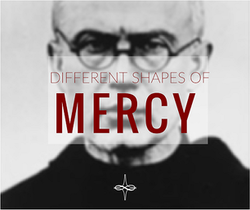 Pope John Paul II, in his homily at the Mass he celebrated at the site of the Brzezinka (Auschwitz II) Concentration Camp in 1979; called St. Maximilian Kolbe “the patron of our difficult century.” Although the dawn of a new century has since come, St. Maximilian remains a strong symbol of Christian charity today. Seventy-four years ago tomorrow, he offered up an ultimate act of charity while knowing it would cost him his own life to save another. While Maximilian Kolbe was a prisoner at Auschwitz, several men escaped from the camp. In an attempt to deter other prisoners from trying to escape, the officers chose ten men to starve to death. When one of the men chosen expressed his anguish because he had a wife and children, St. Maximilian willingly volunteered to take his place. After two weeks without food or water, St. Maximilian was the only one of the ten still alive. At that point, he was killed by a lethal injection. Although we cannot know for certain what happened while the ten men were held in the bunker, there are reports that St. Maximilian spent much of the two weeks leading the other nine in prayer to the Blessed Mother. Most of us will not be called to make the same sacrifice as St. Maximilian did for a stranger, but God calls each of us to works of charity and mercy. The Corporal and Spiritual Works of Mercy are simple ways to love God and to love our neighbor. This might mean sacrificing your Saturday afternoon to drive an elderly neighbor to her doctor’s appointment or to volunteer at a food pantry. Mercy might take the form of comforting a coworker or classmate (regardless of whether or not you are friends) when you notice them grieving. Mercy means not honking or cursing, but instead offering up a prayer when someone cuts you off in traffic. Mercy could mean not buying another sweater when you already have ten hanging in your closet and instead donating the money to a charity for the homeless. Every act of mercy requires some sacrifice--whether you are giving up time, money, or a bit of yourself--but there is no simpler way to tell God that you love Him. St. Maximilian Kolbe, pray for us! Jennifer Beckmann is an Administrative Secretary for the United States Conference of Catholic Bishops.
Pope John Paul II, in his homily at the Mass he celebrated at the site of the Brzezinka (Auschwitz II) Concentration Camp in 1979; called St. Maximilian Kolbe “the patron of our difficult century.” Although the dawn of a new century has since come, St. Maximilian remains a strong symbol of Christian charity today. Seventy-four years ago tomorrow, he offered up an ultimate act of charity while knowing it would cost him his own life to save another.
While Maximilian Kolbe was a prisoner at Auschwitz, several men escaped from the camp. In an attempt to deter other prisoners from trying to escape, the officers chose ten men to starve to death. When one of the men chosen expressed his anguish because he had a wife and children, St. Maximilian willingly volunteered to take his place. After two weeks without food or water, St. Maximilian was the only one of the ten still alive. At that point, he was killed by a lethal injection. Although we cannot know for certain what happened while the ten men were held in the bunker, there are reports that St. Maximilian spent much of the two weeks leading the other nine in prayer to the Blessed Mother. Most of us will not be called to make the same sacrifice as St. Maximilian did for a stranger, but God calls each of us to works of charity and mercy. The Corporal and Spiritual Works of Mercy are simple ways to love God and to love our neighbor. This might mean sacrificing your Saturday afternoon to drive an elderly neighbor to her doctor’s appointment or to volunteer at a food pantry. Mercy might take the form of comforting a coworker or classmate (regardless of whether or not you are friends) when you notice them grieving. Mercy means not honking or cursing, but instead offering up a prayer when someone cuts you off in traffic. Mercy could mean not buying another sweater when you already have ten hanging in your closet and instead donating the money to a charity for the homeless. Every act of mercy requires some sacrifice--whether you are giving up time, money, or a bit of yourself--but there is no simpler way to tell God that you love Him. St. Maximilian Kolbe, pray for us! Jennifer Beckmann is an Administrative Secretary for the United States Conference of Catholic Bishops. As I looked from the trail, I saw a beautiful, soft mist that seemed to be gently kissing my face. There was a purple hue on the vast fields of heather ahead; while the surrounding foliage was the brightest green that I'd ever seen. There was a soft breeze that gently traveled through the glen and seemed to be the words of encouragement I needed to keep climbing; to keep pushing. In the distance there was a long loch that seemed to stretch for miles and miles. In the air if I stopped and listened, I swear that off in the distance a lone bagpiper was playing. In this moment, I finally gained appreciation for the country of my ancestors. I was in Scotland, climbing Ben Nevis, the tallest peak in the country. I was on a pilgrimage through land of my ancestors. My grandfather's family hails from the northern most island in the Orkney Islands called North Ronaldsay. The Tulloch's were proud members of Clan Ross, and were happy to wear the family tartan. I thought I had found paradise, and I didn't want to leave. Many years later, I was walking down a cobblestone street and found another paradise. I could hear bells tolling and I could smell another phenomenal dish being served at a sidewalk restaurant. There was a clear, deep blue sky above, even on New Year's Day. It did not take very long to actually hear a musician playing a familiar country tune. I went from church to church walking with the saints. This was the city of Rome, in all its glory. As I wandered the streets with our pilgrimage group, eating gelato, I thought to myself that this place also was paradise and I didn't want to leave. In a way that's what pilgrimages do. They transport us to a new location, both physically and spiritually. This Saturday is the feast of Saint James the Apostle. St. James was one of Jesus' first disciples, was present for the transfiguration, and it is believed that he was the first apostle to be martyred. After his death, his remains were transported to Spain and he was buried at Santiago de Compostela. This site has become one of the greatest pilgrimage locations in the world called El Camino, The Way of St. James. Pilgrims since the Middle Ages have been making the trek in northern Spain. It can take a pilgrim several months to complete, depending on which route they take, and the pilgrimage is becoming increasingly popular. In 1985, records show that approximately 700 pilgrims made the trek, but by 2010 there were nearly 273,000 pilgrims that set out to complete the Way of St. James. This popular pilgrimage was documented in the 2010 movie The Way, starring Martin Sheen and written by his son, Emilio Estevez. Pilgrimages can be anywhere and can take any kind of form. We can travel to distant places, far from home, or we can visit somewhere close to home. Pilgrimages are meant for us to find ourselves and to deepen our relationship with God. When we walk with a friend, we chat and get to know them better, and the same is true when we walk with God. As we move forward in life, we are never done with our journey. When we rejoice, God is there rejoicing, and when we cry, God is there too, comforting us. Pilgrimages remind us of this. If we can seek God in all places then one does not have to be in the Scottish Highlands, in the streets of Rome, or on the Camino to be on pilgrimage. We can go anywhere and we will be on our way to find God. Patrick Fricchione is the Research and Production Associate for the Catholic Apostolate Center
To learn more about Martin Sheen and his Catholic Identity, check out this webinar where Sr. Rose Pacette, FSP discusses the faith surrounding this actor and the stories that shaped his Catholic Faith: This past spring, Pope Francis went on a pilgrimage to the Holy Land with the motto, “So that they may be one.” On November 12, we celebrate a saint who lived by this motto, St. Josaphat.
St. Josaphat was an Eastern Rite bishop and model of Christian unity. He was martyred in an effort to bring part of the Orthodox Church into union with Rome. He was born John Kunsevich in 1580 to a Catholic family in what is now modern day Ukraine. Clergy who were seeking and supporting reunion with Rome influenced Kunsevich at a young age. This led him to become a Basilian monk and priest. He lived as a preacher and ascetic. Josaphat was elected bishop of Vitebsk in 1617 and became archbishop of Polotsk in 1618. Through synods, catechesis, reform of the clergy, and personal example, Josaphat influenced the greater part of the Orthodox in the area of Vitebsk to unity. He remained steadfast in his beliefs by opposing Latins who saw unity only in Latin terms. Likewise he suppressed Byzantine traditions in the name of Catholic unity. An Orthodox archbishop was appointed in Polotsk and Josaphat was accused of taking office invalidly. Many of the Byzantine Catholics were won over to allegiance to Orthodoxy. The Latin bishops of Poland did not support him. In 1623 Josaphat went to Vitebsk to bring peace and preach to churches to reconcile differences. On November 12, a mob broke into the house where he was staying, shouting hatred and violence. He was struck in the head with an axe blade mounted on a long shaft, and shot. His body was thrown into a river after the upheaval. An article from EWTN writes, “It is important to say that there was a martyr on the Orthodox side as well, and even good men were uncertain where truth and justice lay. St. Josaphat died working for reconciliation, and peacemakers often find themselves hated by both sides.” Four hundred years later Church leaders are supporting the same cause for unity. St. Josaphat did not have all of the answers, but he did know that following Christ and working toward forgiveness and peace were worth the pain of confronting those who hated him. He was canonized by Rome as the first saint of the Eastern Church. Pope Francis displayed this sentiment in conversations with the Orthodox Church while visiting the Holy Land a year after he spoke about the treasures of Christians. He noted that “we Christians bring peace and grace as a treasure to be offered to the world, but these gifts can bear fruit only when Christians live and work together in harmony.” He shares the convictions of St. Josaphat and the gifts they bear. It is an important reminder of the responsibility we share to promote unity among all Christians. Sophie Jacobucci is a recent graduate of the Echo Program at Notre Dame and currently lives in Denver, Colorado. 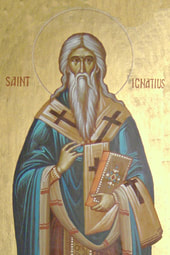 Tomorrow we celebrate the feast day of Saint Ignatius of Antioch. Although we do not know much about his early life, the last several months of his time on earth echo throughout history. Ignatius was appointed bishop of Antioch around the year 69 AD. During his time as bishop, the emperor Trajan called him an “evil spirit who leads his people to destruction.” Ignatius, also known as Theophorus (which translates to mean “God Bearer”), answered the accusation with this: “There is but one God, who created Heaven and Earth, and all that is in them, and one Jesus, made Christ, into whose kingdom I earnestly desire to be admitted.” His defiance angered Trajan and prompted him to question whether the Jesus he spoke of was the same one crucified by Pontius Pilot. Once again in defiance, Ignatius responded, “Yes, the same, who by his death has crucified both sin and it's author, and who has proclaimed that every make of the devil shall be trodden under foot by those who bear him in their hearts.” In these statements we can see that Ignatius truly epitomizes the name Theophorus. Because of these strong statements, Ignatius was sentenced to death by wild beasts in the Roman Colosseum. He was transported by ship from the seaport of Selucia, but did not travel directly to Rome—which proved to be a great mistake for those trying to rid the world of Christianity. All along his journey through Asia Minor, Christians would receive letters from Ignatius that strengthened their faith and united them. He was afforded traveling partners along the way. One of these friends, Philo, who was deacon of Tarsus and Agothopus, reportedly authored the tale of his martyrdom. Many friends and followers of Ignatius traveled to Rome ahead of the ship to await Ignatius' arrival. This infamous journey produced six letters to churches to the Christian communities throughout Asia Minor. He also wrote a letter to Bishop Polycarp of Smyrna, a fellow companion. These letters not only contain some profound and famous quotes by Ignatius, but are very important and relevant to Apostolic teachings, traditions and early Church beliefs passed on from Jesus to the Apostles, bringing true meaning to Apostolic succession. These letters undoubtedly spurred the growth and strength of Christianity for centuries to come and have proved to be the basis for the development of Christian theology. Ignatius is also known for a “first” in Christian literature, when in the letter to Smyrna, the Catholic church is spoken of. The word he uses is “Katholikos,” a Greek word meaning “universal.” Ignatius said: “Wherever the Bishop appears, there, let the people be, as wherever Jesus Christ is, there is the Catholic Church.” An important fact here is that he didn't need to explain the Greek word. It is suggested by many scholars and theologians that this wasn't the first time the word had been used. Ignatius relentlessly taught the beliefs and practices of the early Church. He stressed the value of the Eucharist, calling it “the medicine of immorality.” He taught loyalty and obedience to the bishops as the “transmitters” of the true Apostolic tradition along with the need for unity and peace. This is still very relevant to the Church today. Prior to his arrival in Rome, Ignatius pleaded to his friends and supporters that they not interfere with his eventual death and martyrdom. He said, “I am God's wheat and shall be ground by teeth of wild animals. I am writing to all the churches to let it be known that I will gladly die for God, if only you do not stand in my way. I plead with you: show me no untimely kindness. Let me be food for the wild beasts for they are my way to God.” He also said, “I prefer death in Christ to power over the farthest limits of the earth. He who died in place of us is the one object of my quest. He who rose for our sake is my one desire.” Leading his flock through faith and love for Jesus Christ, he became a living tradition and disciple of the early Church. Was it the end for St. Ignatius on that bloodied dirt floor of the Roman Colosseum that day? I think not. For as the Bishop of Antioch, he catapulted the growth of the Church and the “one true faith.” He achieved his life’s goal: to be in the presence of Jesus Christ for all eternity. Tomorrow we celebrate the feastday of St. Ignatius of Antioch, early Church Father, proclaimer and defender of the faith, and true disciple of Christ. We can all take inspiration from his true devotion to the Church and her mission. A celebration of a Saint, indeed! Mark A. Straub, Sr. is a member of the Knights of Columbus and president of the parish council of Our Lady of the Woods Parish in Woodhaven, Michigan.
Just two weeks ago, Pope Francis named Fr. Kurt Burnette as the head of the Byzantine Eparchy of Passaic, in the United States. How is it, though, that the Roman Pontiff has the authority to name a bishop of an Eastern Rite? In many regards, we owe this to the work of a 16th century saint, St. Josaphat, whose feast we celebrate today, Nov. 12. The Ruthenian Church, a branch of the Eastern Church mainly found in Russia, Ukraine, Lithuania and Poland which was once part of the Eastern Church is now in full communion with Rome.
St. Josaphat, born around the year 1580, is one of few people from an Eastern Rite who has gone through the canonization process in the Roman Catholic Church. As a young man, St. Josaphat tried to live a virtuous life, which led him to a Basilian monastery in Vilna, Lithuania. His great virtue caused him to be elected abbot of his own and other monasteries, and later appointed as bishop and archbishop in Poland. While an agreement had been signed between the Ruthenian Church and the Roman Catholic Church early in his life, there were many members of the Ruthenian Church who did not want to be in communion with Rome. Neither side was completely innocent in their actions, with violence and betrayal being perpetrated on both sides. However, there were men and women on each side of this ecumenical disagreement who tried to rise above the conflict. St. Josaphat was one of these men. For all his attempts to mend the rift between the Ruthenian Church and the Roman Church, St. Josaphat was hated by many in his native land (Lk. 4:24). Eventually, due to his work in bringing about reforms of the clergy in Lithuania and Poland, as well as efforts to bring the Ruthenian Church into better relation with Rome, he was beaten, stabbed, and shot. His body was dumped unceremoniously by his attackers into a river. Recognized as a martyr by the Roman Catholic Church, St. Josaphat was beatified in 1643 and canonized in 1867. In the Farewell Discourse in the Gospel according to St. John, Christ is praying in the Garden of Gethsemane before His arrest. One famous line from His prayer is “that they may all be one” (Jn. 17:21). This is the work that St. Josaphat was trying to accomplish in the small corner of God’s vineyard to which he was assigned. How often do we fail to recognize the importance of Christian unity? We will soon, in 2017, be marking the 500th anniversary of the beginning of the Protestant Reformation. Within some of our lifetime’s, in 2054, we will be recognizing the end of the first millennium of the Great Schism. Our Church has been broken apart for far too long. We have failed, in many accounts, to ‘breathe with both lungs’ as Bl. John Paul said. Yet, in the spirit of St. Josaphat, great work is being done. Popes Benedict and John Paul II did amazing work in dialoging with the Lutheran and Calvinist communities. Both of them, as well, met with Archbishop Rowan Williams, the then spiritual head of the Anglican Church. Pope Francis has continued on this same track. He has met with the Coptic Pope Tawadros II, head of Egypt’s 8 million Coptic Christians. Even the Patriarch of the Eastern Church, Bartholomew of Constantinople, was present at the inaugural Mass of Pope Francis, a step which had not happened since the Great Schism. We are witnessing historical moments in our Church today. Let us continue to pray the words that Christ Himself prayed in the Garden, let us hope for the total unification of our Church, and let us, in all charity, always welcome home those who come back to our Mother Church. We should follow the example of St. Josaphat who, even in the face of violence and hatred, sought out peace and unity above all things. St. Josaphat, pray for us! Michael Phelan is in his second and final year in the Echo Program at the University of Notre Dame and serves as an Apprentice Catechetical Leader at Nativity Catholic Church in Brandon, FL, in the Diocese of St. Petersburg. 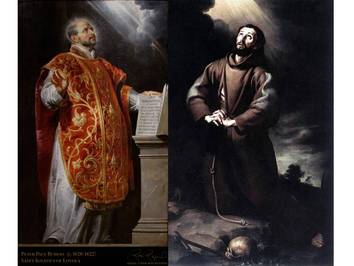 This new pope literally had me at “hello” — unimposing, humble hand wave from the balcony and all. And this humble legacy continues; Pope Francis is turning heads left and right of both the “left” and “right,” consistently shunning the traditional trappings the papacy has offered for hundreds of years. His latest press-stunner: he will not be sleeping in the papal apartments of the Apostolic Palace, but rather in the Vatican guesthouse—a less luxurious living arrangement that puts him in community with those who will be working with and for him. As a Catholic, I’m shocked and amazed. As a Franciscan (and a Capuchin to boot!) I’m humbled and inspired. “He’s out-Franciscan-ing the Franciscans!” I’ve heard people say. And I must agree. This new pope is certainly living up to his namesake—trading the regality and legality of the position and opting for, in my opinion, something a little more expected of a “servant of servants.” Fortunately for us “fledgling Franciscans” in studies, we are being given a great example from our new leader. I’m not lying when I say that this pope has made me reflect on my own life of simplicity and ask some tough questions that I can’t necessarily provide ready answers for at the moment. This is how I know when someone is dripping with authenticity: when the example they give calls my own integrity into question. I just didn’t think it would be a Jesuit that would do it! I have to remind myself that while this pope chose the name Francis (and is living up to the title!), his colors as a Jesuit are shining more true than ever. My experiences with Jesuits are limited, but what I have experienced has been nothing short of impressive. The Jesuits of St. Joseph’s University in Philadelphia heard my confessions as a bright-eyed Capuchin postulant with utter compassion and sensitivity. The Jesuit Retreat House in Parma, Ohio have led myself and thousands of others on spiritual journeys through retreats and programs—sharing with the Church the wealth of Jesuit spirituality and discernment. My uncles and cousins who were educated by them in Toledo, Ohio boast of their Jesuit education with a glowing pride, as I’m sure others can attest to throughout the United States in the plethora of Jesuit institutions of learning. Their missionary zeal speaks for itself in their martyrology. It’s a life given over in love for the sake of the people. Needless to say, these men are made of the stuff of saints—and I constantly remind myself that I’m selling this guy short when I boast of his Franciscan spirit and put aside his life-long service and evangelical influence as a faithful Jesuit. Our new pope bears the name Francis, loves the poor, lives simply and humbly, and upholds the teachings of the Church—and every one of these decisions of his grow fruitfully, no doubt, from a life given to Christ and His Church in the Jesuit tradition. This pope has, ironically, helped me realize less of what separates Francis of Assisi and Ignatius of Loyola and more of what they have in common: a burning desire to serve the poor of this world in charity and humility. Who could have figured that it would take a Jesuit to show me how to be a real Franciscan! Brother Brian Stacy, O.F.M. Cap. is a Capuchin Franciscan from the St. Augustine Province and is currently studying at The Catholic University of America.
An excerpt from Cardinal Sodano’s homily, given this morning during the Mass for the Election of a Roman Pontiff (full text): Brothers and sisters in Christ today’s Gospel takes us back to the Last Supper, when the Lord said to his Apostles: “This is my commandment: that you love one another as I have loved you” (John 15:12). The text is linked to the first reading from the Messiah’s actions in the first reading from the prophet Isaiah, reminding us that the fundamental attitude of the Pastors of the Church is love. It is this love that urges us to offer our own lives for our brothers and sisters. Jesus himself tells us: “There is no greater love than to lay down one’s life for one’s friends” (John 15:12). The basic attitude of every Shepherd is therefore to lay down one’s life for his sheep (John 10:15). This also applies to the Successor of Peter, Pastor of the Universal Church. As high and universal the pastoral office, so much greater must be the charity of the Shepherd. In the heart of every Successor of Peter, the words spoken one day by the Divine Master to the humble fisherman of Galilee have resounded: “Diligis me plus his? Pasce agnos meos… pasce oves meas”; “Do you love me more than these? Feed my lambs… feed my sheep!” (John 21:15-17) In the wake of this service of love toward the Church and towards all of humanity, the last popes have been builders of so many good initiatives for people and for the international community, tirelessly promoting justice and peace. Let us pray that the future Pope may continue this unceasing work on the world level. Moreover, this service of charity is part of the intimate nature of the Church. Pope Benedict XVI reminded us of this fact when he said: “The service of charity is also a constitutive element of the Church’s mission and an indispensable expression of her very being; (Apostolic Letter in the form of a Motu Proprio Intima Ecclesiae natura, November 11, 2012, introduction; cf. Deus caritas est, n. 25). It is a mission of charity that is proper to the Church, and in a particular way is proper to the Church of Rome, that in the beautiful expression of St. Ignatius of Antioch, is the Church that “presides in charity” “praesidet caritati” (cf. Ad Romanos (preface).; Lumen Gentium, n. 13). My brothers, let us pray that the Lord will grant us a Pontiff who will embrace this noble mission with a generous heart. We ask this of the Lord, through the intercession of Mary most holy, Queen of the Apostles and of all the Martyrs and Saints, who through the course of history, made this Church of Rome glorious through the ages. Amen.
"For already at the beginning of their lives they pass on. The end of the present life is for them the beginning of glory. These then, whom Herod's cruelty tore as sucklings from their mothers' bosom, are justly hailed as "infant martyr flowers"; they were the Church's first blossoms, matured by the frost of persecution during the cold winter of unbelief." St. Augustine
Twinkling lights adorn front porches; snowflakes fall softly to the earth; jingle bells sound from every street corner; and children’s voices sing praise in memory of the Savior’s birth as Christmas comes bustling into our lives. And as I watch and listen, I’m reminded that there are many voices that won’t be joining that chorus, at least not audibly. Christmas is one of my favorite times of year, but it also brings much sadness along with it as I remember my little brother who once again will not be joining us to celebrate this joyous feast. This pain is manifested in a deep way as much joy is to be shared by many. I don’t always associate Christmas as a time to bear my cross and follow Christ; after all, this is a joyous occasion. It’s a time to celebrate Jesus’ birth, not to mourn his death. This year I can’t help but think of the cross as I find myself remembering the deep sorrow and loneliness of losing someone so dear to me. Questions flood my mind of why my little brother, so innocent and so little, had to suffer stillbirth and die. As I reflect on this experience of powerlessness, I am reminded of those mothers who two thousand years ago lost their sons as Herod viciously sought to destroy Jesus. During the Christmas Season, our Church has a beautiful tradition of honoring those early martyrs, the Holy Innocents. Just as my own parents were devastated at the loss of my brother, I know that these mothers and fathers, too, felt the almost unbearable sorrow and sense of helplessness of losing a child. This senseless loss is my cross, as I can imagine it is a struggle for anyone who has lost a loved one, and yet Jesus doesn’t leave me alone for long. Words of St. Augustine come rushing into my head, comforting me: “For almighty God…because he is supremely good, would never allow any evil whatsoever to exist in his works if he were not so all-powerful and good as to cause good to emerge from evil itself.”[1] Hope. Reassurance. The cycle of death and life revealed. And then I realize why Christmas is so dear to me. Christmas manifests the time to celebrate life and to remember that good is ever being born into this world. Through his Beloved Son, God lovingly demonstrates His desire for good to triumph. As St. Augustine reminded me, God not only desires good but God always brings good out of evil situations, even though we might not always recognize it. My mind is amazed as I ponder the mystery of the Incarnation. Gratitude fills my heart as I feel Christ with me a midst my joy and my sorrow. The beautiful gift of a child, of the God incarnate, sent to us to share in our life and to bring good out of evil in a truly personal way. Church bells ring; incense lifts gracefully to the heavens; angels proclaim Good News of great joy; the Body of Christ is broken and shared; and I know in my heart that my little brother lives. Amy Winkler serves as an Echo Faith Formation Apprentice in the Diocese of Camden, NJ [1] St. Augustine, Enchiridion, 3, 11; PL 40, 236 as cited in CCC #312. |
Details
Archives
July 2024
Categories
All
|
About |
Media |
© COPYRIGHT 2024 | ALL RIGHTS RESERVED

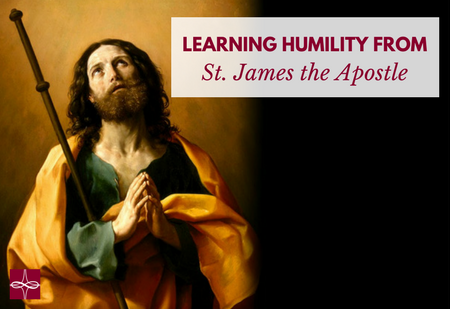

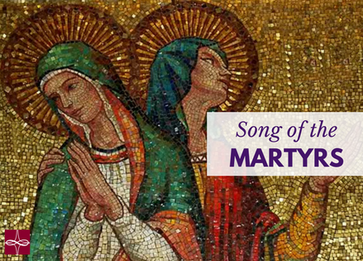

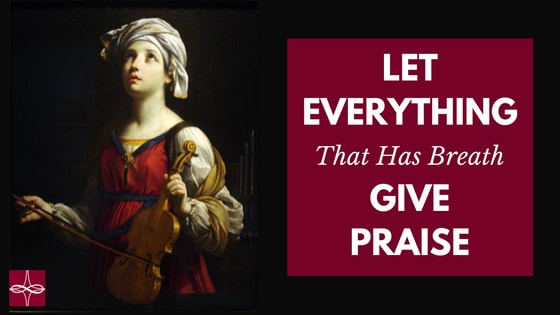
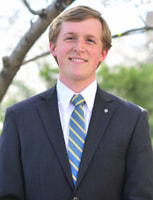
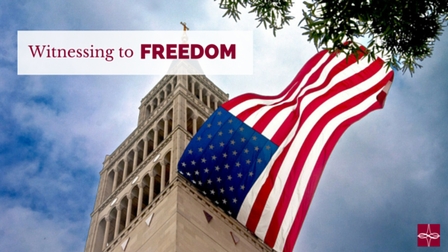
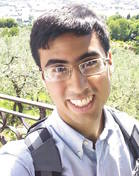
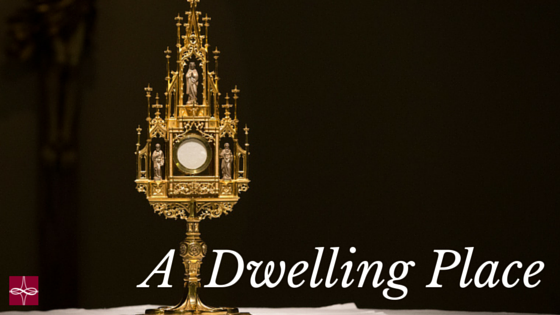
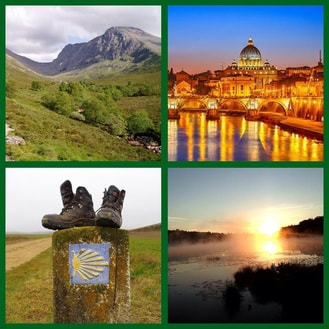
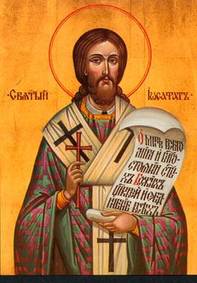
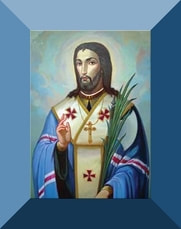
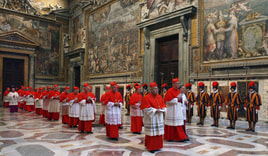
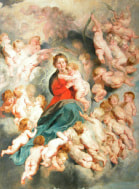
 RSS Feed
RSS Feed